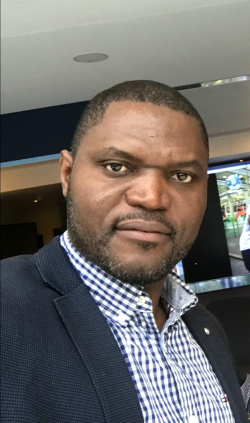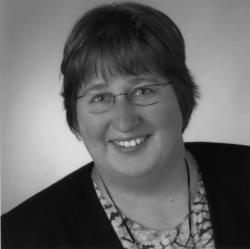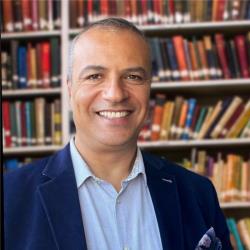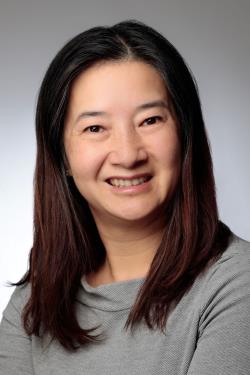Connecting ICT, Digitalization and Industry 4.0 Technologies to accelerate economic growth and industrialization in developing countries
Digital Transformation Alliance (DTA) and United Nations Industrial Development Organization (UNIDO)
Session 298
During this session we will discuss on high level how to connect ICT technologies to the industrialization needs of developing countries as key for their sustainable development journey, economic growth, and people’s prosperity. Furthermore, we will explore tangible strategies, operational solutions, ready to use tools, and impactful partnerships that contribute to accelerate ongoing industrialization actions and draw action plans.
At the end of the day, all our efforts should lead to improve people’s live and achieve global prosperity. But currently there is a big shift between developing and developed countries, and this has a negative impact on global property.
Industrialization here means here to find a balance by working on processing and transforming the raw material, so that local economy can growth, jobs are created, new businesses flourish in a global context."
Therefore, there is an urgency in partnering for tightening the interconnectedness of advanced ICT (as enabling technologies) driven e.g. by ITU and the manufacturing principles of the fourth industrial revolution (Industry 4.0) to drive structural transformation and accelerate sustainable development & Economic growth to reach the level of development as specified in the SDG.
By enabling nations to connect the dots, adopt, master these technologies, empower them to create sustainable industries and build skilled human capital, they will be able to contribute to the global prosperity, thus achieving the strategic development goals.
An international coalition or alliance for technology driven industrialization is needed to put more effort than ever.

Prof. Dr.-Ing. Mbang has over 25 years of cumulative industry experience and has been responsible for several Digitalization teams and high-tech projects along the product creation process (R&D, IT, production planning, manufacturing and Quality management) in academia and the automotive industry.
He is also lecturer in Digital engineering and Industry 4.0 at the Karlsruhe Institute of Technology (Germany) and Technical Institute in Sofia (Bulgaria).
He is expert in industry 4.0, Smart factory, Manufacturing & Digital engineering, digitalization technologies (Big Data, AI, IoT, VR/AR, etc.) and their applications such as Robotics, Digital Twin, Agile Production, MES, etc.
He is founding promoter of the NGO “Digital-Transformation Alliance”, which mission is to promote fast adoption and mastery of digital and industrial technologies to accelerate the transformation and industrialization in developing countries for an inclusive and sustainable digital economy.
Additionally, he is founder of InnoTechLab, a technology innovation development, incubation and vocational training Center for industrialization and smart manufacturing.
He is one of the co-founders of the new initiative AISMA (Alliance for Industry 4.0 and Smart Manufacturing for Africa), driven by UNIDO and other international Experts.
As a Game Changer, Prof. Mbang is a passionate Coach in digital leadership, digital transformation and agile organization covering agile mindset and agile working methods.

I am working with the United Nations, providing support for least developed countries (LDCs).
- Mobilizing support for vulnerable countries, especially Least Developed Countries in Africa and Asia-Pacific
- Strategic planning and coordination of UN system-wide activities in favour of LDCs including substantive preparations of the Fifth UN High Level Conference on LDCs (https://www.un.org/ldc5/), which will take place in Doha, Qatar in January 2022.
- Research on various topics related to the Sustainable Development Goals (SDGs) including productive capacity, financing for sustainable development, resource mobilisation, aid, trade, climate change adaptation and mitigation, disaster relief

Adel BEN YOUSSEF is an Assistant Professor of Economics at the Université Côte d'Azur and a member of the CNRS research laboratory (GREDEG - CNR UMR 7321). He is also a researcher fellow at the ERF and GLO, and has been a visiting professor at more than 12 international universities. He is an international expert in digital twin and green transitions for many international institutions, and has conducted several important studies on digitalization, labor market, and skills. He is a founding member of AISMA.
In addition, he has served as a negotiator for Tunisia at COP 23, 24, 25, 26, 27 and 28 (2017-2023) in the field of climate finance. He has published more than 100 academic articles in various renowned international journals. He has been involved in the coordination committee or scientific committee of more than 50 major scientific and business events. He is Editor-in-Chief of the Platforms Journal (MDPI), Associate Editor of the journals Development and Sustainability in Economics and Finance (Springer) et Green and Low-Carbon Economy (GLCE). He is ranked among the 5% of the best economists over the last 10 years by REPEC.

Ana Paula Nishio is a dedicated leader in AI and Digital Transformation with over 30 years of experience in ICT and Digital. As Chief of Digital Transformation and AI Strategies at UNIDO, she champions inclusive and sustainable industrial development through collaboration and innovation in frontier technologies.
Educated at the Open University, Universidade de São Paulo (USP), and Universidade do Estado de São Paulo (UNESP), Ana Paula's expertise in technology management and business economics is complemented by professional certifications in IT Service Management, Enterprise Architecture, DevOps and Project Management. Her diverse ICT skills are a testament to her commitment to continuous learning and adaptation.
In her tenure at UNIDO, Ana Paula also led the IT Services and the L & D Divisions, prioritizing collaborative, people-centred digitalization initiatives. Her prior roles at the Organization for the Prohibition of Chemical Weapons (OPCW, 2013 Nobel Peace Prize) and the International Criminal Court shaped her collaborative approach to ICT Operations, Infrastructure, Support, and Service Management throughout diverse thematic areas. Her foundational experiences at Hewlett-Packard and Goodyear further honed her skills, work ethic, and collaborative mindset.
Fluent in Portuguese, English, and Spanish and conversant in French, Dutch, and German, Ana Paula excels in cross-cultural communication, fostering teamwork and cooperation on international projects. Her work at UNIDO goes beyond technological innovation; it creates synergies for intelligent, green, and inclusive industrial development.
Ana Paula Nishio's strong suit lies in her humility and commitment to collaborative leadership, bringing people together to drive sustainable industrial development through accelerating technological changes.
-
 C1. The role of governments and all stakeholders in the promotion of ICTs for development
C1. The role of governments and all stakeholders in the promotion of ICTs for development
-
 C3. Access to information and knowledge
C3. Access to information and knowledge
-
 C4. Capacity building
C4. Capacity building
-
 C6. Enabling environment
C6. Enabling environment
-
 C7. ICT applications: benefits in all aspects of life — E-agriculture
C7. ICT applications: benefits in all aspects of life — E-agriculture
This session will emphasize one of the key elements for sustainable development that is industrialization, that, in turns, need enable technologies as specified in the WISI action lines to drive industrialization as defined in the SDG.
-
 Goal 8: Promote inclusive and sustainable economic growth, employment and decent work for all
Goal 8: Promote inclusive and sustainable economic growth, employment and decent work for all
-
 Goal 9: Build resilient infrastructure, promote sustainable industrialization and foster innovation
Goal 9: Build resilient infrastructure, promote sustainable industrialization and foster innovation
-
 Goal 12: Ensure sustainable consumption and production patterns
Goal 12: Ensure sustainable consumption and production patterns
-
 Goal 17: Revitalize the global partnership for sustainable development
Goal 17: Revitalize the global partnership for sustainable development
This session will emphasize one of the key elements for sustainable development that is industrialization, that, in turns, need enable technologies as specified in the WISIS action lines to drive industrialization as defined in the SDG.